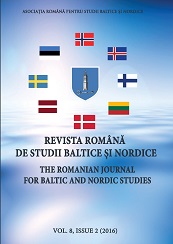The people’s expectations of good governance in German-occupied Estonia, 1941–1944
The people’s expectations of good governance in German-occupied Estonia, 1941–1944
Author(s): Kari ALENIUSSubject(s): Politics / Political Sciences, History, Social Sciences
Published by: Asociatia Romana pentru Studii Baltice si Nordice
Keywords: Estonia; German occupation; World War II; governance; ethnic relations;images;
Summary/Abstract: This paper aims to explain why certain elements were present in the expectations of the Estonian people and how, in the end, Estonians perceived the activities of German administration. On the basis of the analysis it is evident that a few central elements were distinguishable. The expectations consisted of several universal elements while others derived their roots from local and time-specific conditions and the history of Estonian-German relations. Similarly, there were remarkable divergences as to how different levels and parts of administration were perceived by the local population. For instance, the highest German representative in Estonia, Generalkommissar Karl-Siegmund Litzmann was seen in a different light than the rest of the administration and different hopes were placed on him. The course of war also brought along changes in opinion and mood of the Estonians. The source material of this study mainly consists of the surveillance reports of the German Security Police and other relevant documents of the German occupation administration, including those of the Estonian Self-Administration. Revealing examples of both good and bad governance exist in the original material.
Journal: Revista Română de Studii Baltice şi Nordice
- Issue Year: 8/2016
- Issue No: 2
- Page Range: 25-46
- Page Count: 22
- Language: English, Romanian

